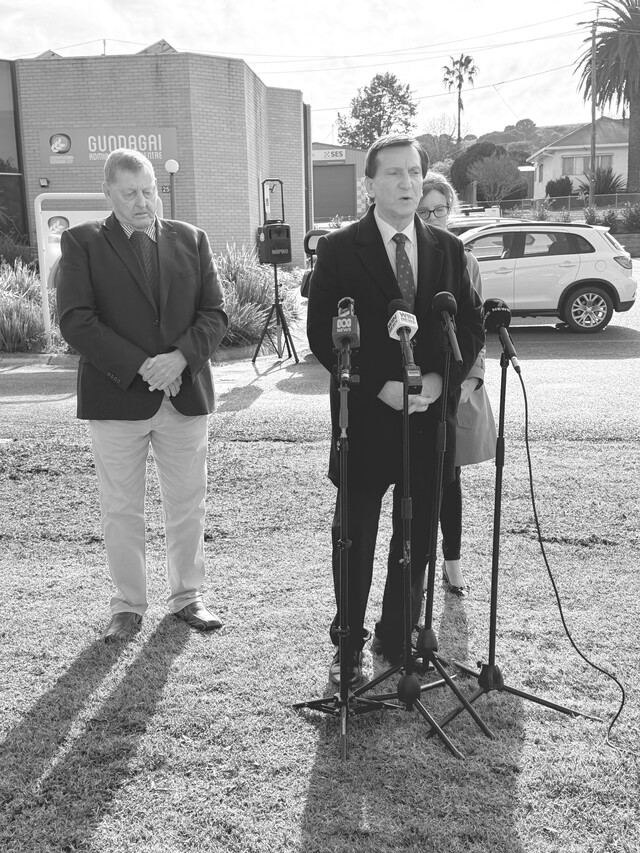Once again, 2002 has been an eventful year for Local Government. In this, our last edition for the year, we thought it might be useful to revisit some of our coverage and editorial comments on key issues over the past year.
February – on the public liability crisis
Soaring public liability insurance premiums, coupled with the recent non-feasance ruling, have Councils and communities reeling throughout Australia. Local economies are adversely affected as local businesses and tourist operators struggle to pay escalating premiums. At the same time, many local sporting, social and community organisations are seriously pondering their ongoing viability. It is vital these insurance/liability issues are considered and addressed by all spheres of government through COAG. If the Federal Government fails to take the lead, and passes the onus back to the States to sort this out, then the result could be an untenable situation of seven different approaches. Councils and their communities deserve much better than this.
March – on funding for Local Government
With the State and Territory Governments winning the spoils of the GST, as the poor cousin, Local Government still languishes without a direct share of taxes raised or access to a growth tax. Moreover, being reliant on the generosity or whims of the other spheres of government does not assist Councils as they endeavour to plan strategically for the long term, as well as meet immediate needs. According to ABS figures Local Government is spending $2.5 billion each year on environmental protection, with $1.8 billion of this going into natural resource management activities. Matching spending, together with Local Government having a seat at the decision making table, are essential elements if we are to ever move towards a real and equal partnership across all spheres of government.
May – on the proposed Albury Wodonga merger
Thirteen months ago, Premiers Carr and Bracks made the announcement that the Cities of Albury and Wodonga would be merged into the one City. Briefed just one hour prior to the Premiers’ announcement of the merger, both Albury and Wodonga Councils agreed to discuss the feasibility of joining forces but, at the same time, have called for the issue to be decided by each community via a referendum. However, the two State Governments do not see this as essential. Forcing communities together without local support is a recipe for disaster. Leaving the Councils out of the equation is a further affront to the local community, not to mention the undermining of democracy, lack of open government and any semblance of working in partnership with Local Government. Given the flawed process, on this occasion the merger proposal deserves to fail.
June – on the Cost Shifting Inquiry
The Commonwealth Government dealing itself out of the Cost Shifting Inquiry must be seen as a flagrant attempt to shift responsibility to the States. The chance of the States accepting this, or agreeing to any recommendations from the Inquiry that would see them meeting the shortfalls faced by Local Government, are unlikely. A funding solution that best meets the needs of all communities, no matter where they are located, demands a full Inquiry where all cards are placed on the table. Without this, a fair and equitable division of the tax dollar is a long way off.
August – on the worsening drought
It is a well accepted fact that life can be tough and unpredictable for those who choose to live in the 84 per cent of Australia that lies outside the urban fringe. With all indicators pointing to the return of El Nino weather conditions, many areas are now experiencing a severe drought and an increasing likelihood of worse to come. With large tracts of the countryside having received just a one season reprieve from the last major drought, the resolve of Councils and their communities to battle through will, once again, be sorely tested. The potential of a rural downturn and flow on consequences for small towns and regional centres will call for additional innovative ideas and community empowerment to carry these through. No doubt Councils and their communities will again rise to the challenge.
September – on ethics and public accountability
Corporate collapses together with Executives and Directors suffering less than convincing memory losses; conflicts of interest with auditing firms; Government travel rorts and general mismanagement; scientists enhancing research results; people in high places abusing their positions; even a national football club coming to grief after sidestepping the rules – the list goes on. As ethics and propriety are regularly being thrown out the window, it is little wonder the community is becoming increasingly disillusioned. When people start to lose confidence in our checks and balances, our whole system comes under threat. With our three spheres of Government jointly accountable to the people that elected them, it is here that the highest of standards must be clearly demonstrated.
October – on the pitfalls of the e-revolution
There is no doubt that the rapid development in Information Technology over the past decade, particularly via the Internet, has had a profound effect on communities and lifestyles. Access to information, ‘click of a mouse’ communication to anywhere in the world, e-business, e-government, e-almost anything. At home, work or play the information revolution has had a profound impact and will continue to do so. Like other public or private sector organisations, most Council work stations have a PC together with connection to the Internet. Alongside the benefits this brings, there are also the pitfalls. These include productivity losses through non work related use of the Internet; matters relating to privacy and legal liability; misuse that may lead to a sexual harassment claim; and the potential for loss of intellectual property. It is vital that all Councils are aware of these issues and have adequate software to protect them.







